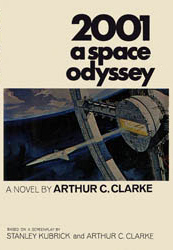 Like Mother Theresa, it was Arthur C Clarke’s historic misfortune to die in the same week as someone with more “celebrity” (Anthony Minghella in his case, rather than Diana). But Clarke was a hugely important figure. Much has already been made of his prophetic abilities as a scientist, notably on satellite communications and moon exploration. But he was also one of the truly great science fiction writers, up there with Bradbury, Blish, Philip K Dick and Asimov, and far superior to the trash fantasy writers of today who have followed in the footsteps of Frank Herbert and Michael Moorcock (while never matching them).
Like Mother Theresa, it was Arthur C Clarke’s historic misfortune to die in the same week as someone with more “celebrity” (Anthony Minghella in his case, rather than Diana). But Clarke was a hugely important figure. Much has already been made of his prophetic abilities as a scientist, notably on satellite communications and moon exploration. But he was also one of the truly great science fiction writers, up there with Bradbury, Blish, Philip K Dick and Asimov, and far superior to the trash fantasy writers of today who have followed in the footsteps of Frank Herbert and Michael Moorcock (while never matching them).
Clarke’s talent as a writer was to set great questions about philosophy and the origin of species in the context of narratives in which the doctrine of scientific progress was a given and contact with alien races an inevitability. His masterpieces – 2001 and Childhood’s End – shared the premise that the destiny of the human race was being manipulated by a higher order of beings (brilliantly revealed in Childhood’s End as resembling the devil, in an example of folkloric precognition). That genre has had its day, now that the trajectory of technology is heading inwards towards genetics, the web, and artificial intelligence. But its master was undoubtedly Arthur C Clarke.






Comments